LADA’S FOREWORD
Dear readers,
Our friend Stanislav has generously shared his own, very thorough translation of a new Russian article concerning historic facts related to the 1954 illegal transfer of Crimea to the Ukrainian Soviet Socialist Republic and some real Soviet documents of that era.
Both Stanislav and I are well familiar with the whole story, having grown up in those parts. We now live in different countries of the West, and because of that, we fully realize how confusing it may be for foreigners, especially for Westerners, to sift through all the propaganda and deliberate distortions you all are being fed when it comes to Russia, Ukraine, Crimea and Eurasia. I know how difficult it is for honest truth seekers to sift through an avalanche of lies and hoaxes. Some of these lies, sensationalist hoaxes and distortions are very sexy and tempting to believe in — if you don’t know the real truth.
I’ll tell you a secret about Stanislav and me. It wasn’t enough for us to grow up in Russia and then go on living in the West. We are two of a rare breed, who preserved our souls intact through all changes, trials and tribulations. We never got poisoned by bitterness, resentment or cynicism as we watched the USSR disintegrate, Russia plunge into the disaster of the 1990s, the once safe and pleasant streets we remembered as little children turn into war zones, and oligarchy take over. While living in the West, we also managed not to succumb to Western brainwashing, unlike some other emigrants. As we learned new things, discovered that the ‘king was really naked,’ found out the truth about global manipulations and hidden agendas, we grew wiser and savvier about the ways of the world. But we didn’t lose ourselves: we preserved our integrity, our spirit and mind intact; we kept our common sense, hope and optimism.
And it is for this reason, ladies and gentlemen, that you all will benefit tremendously from reading our blogs and watching videos we make or translate. We do it to help people. We don’t make money off any of this, except some small donations I get for my articles and Earth Shift Reports, which help to cover some of my expenses.
In the end of 2013 I began FuturisTrendcast in the name of helping people discover the real truth: all I wanted was to educate, illuminate the truth and show the way. It is for this same reason that Stanislav maintains his blog. Both Stanislav and I are here to help unearth those precious few kernels of truth that are being buried deep by those who seek to manipulate and keep you in the dark.
To my dismay, not only Western MSM, but even the Western-based ‘alternative media,’ is guilty of distortions, non-factual sensationalism and outright fantasies or lies. In the past week I received four emails from some of my most valued readers and supporters. They all wanted my opinion about publications on Putin and Russia. Articles in question were published in one large and popular alternative media publication, whose name I won’t say so not to give it additional promo. One article talked about ‘the six clones of Putin’ and another had something to do with not being sure whether ‘Russia was evil and to what degree.’
Perhaps because of this I keep to myself and my own work, collaborating only with those of whose knowledge, intentions and integrity I am sure. I replied that I do not read this publication and don’t recommend it to my readers — well, unless you want to live in a dark and hopeless fantasy world that is far from truth or reality.
On the other hand, if you want to co-create your reality, if you want your children (and if we are lucky, you too) to live in a better world — stick around FuturisTrendcast!
Please note that I’ve already addressed hoaxes, who creates them and why, and how alternative media is manipulated into spreading them (knowingly or unknowingly) in the following works:
The logic and process of a hoax creation explained fully in: ESR 1 RELOADED: IS PUTIN PART OF NWO?
Article: How to Tell a Hoax from Targeted Info Dump (Navigating MSM and Alternative Media)
Interview: Lada Ray ~ Putin’s Disappearance and the New Silk Road ~ The Plane Truth
In the midst of all the confusion it’s especially important and precious to be able to read honest translations of real historic documents. Many thanks to Stanislav for his work and generous sharing!
Those who follow FT know our friend Stanislav as Nemo, who often leaves very informative comments under my articles. He usually includes links to his own posts or to videos/articles elsewhere, which help understand what’s really going on around Russia, EU and Eurasia. Please do check out the comment section for his comments. Incidentally, Stanislav promises us other treats soon: ‘I am finishing translating a documentary film, and have an interesting translation of an article in the works… All in the name of education.’ I’ll either post links to his new translations, or re-post them on FT.
As to my own work, just by way of keeping you all posted:
I am finishing up the expanded version of EARTH SHIFT REPORT 2 reloaded: UKRAINE – TRUTH, LIES & FUTURE HOPE. It includes the original ESR2 Ukraine: True History, plus the best of my materials and classic predictions from 2014. I am adding a new, long article about the latest developments, plus a much expanded analysis and predictions about Ukraine’s prospects. My 2014 predictions are beginning to shape up now and I’ll explain how. I hope to finish it this weekend and release ESR2 reloaded no later than Monday.
I am also working on my new ESR8: BLACK SEA GAMBIT. I’m glad I’ve waited a bit. My newest intel and inside info is simply smashing! ESR8 will come out around February 22. Don’t miss!
I want to time these two reports to the second anniversary of the 2/22/2014 Kiev coup that unseated Yanukovich and plunged the country into war and devastation. ESR9: CRIMEAN AGENDA (The battle for Crimean has only begun!) is to follow, and hopefully I can time it to the second anniversary of the Crimean Referendum that returned the peninsula to native shores.
Since these two seminal events took place in 2014, the Earth Shift has accelerated. Geopolitical situation in the Russian World, Middle East, EU and worldwide has changed so dramatically that looking back we may honestly say we now live in a different reality. But, as I’ve pointed out, the battle for Crimea, the battle for Eurasia and the battle for our world’s common future is only beginning! My reports will help you make sense of everything that is going on; they will reveal the truths that I GUARANTEE you would never know otherwise, since they are being hidden from you, or distorted!
More exciting news! I’ve been asked to do a couple of interviews with some very nice people. These should come out some time in March. Details soon!
In conclusion, and I hope Stanislav doesn’t mind my speaking on his behalf:
Our only goal is to help you see and understand the truth, as well as to right the historic wrongs. We don’t ask for much in return.
To help us know that our work is not in vain, we only ask this:
Please read and share your thoughts in comments (please follow BLOG RULES and be respectful to all)!
Please follow our blogs, like our posts and share the links with everyone you know!
Your donations are also greatly appreciated!
Follow Stanislav’s blog!
Follow Lada’s Blogs: FuturisTrendcast and Lada Ray Blog!
Below, I’ve posted Stanislav’s translation and article in full. It contains many historic facts and rare testimonials, and is valuable as such.
At the bottom of this post, you can read my analysis and post scriptum.
.

STANISLAV’S ARTICLE
Who and How Transferred Crimea into Ukrainian Soviet Socialist Republic in 1952-1954
See original article
Below is my translation of a very informative article by Mikhail Smirnov, published inSvobodnaja Mysl’ (Free Thought).
It is worth noting, that when the author points out the Russian roots in Crimea, he is most probably referring to the Scythians, who are just the same people as Rus, but going under a different name. See my summary of the documentary Yes, Scythians Are Us.
When reading the text below, note one historic peculiarity of USSR of that time. While 14 republics were almost always denoted by their national name – e.g Ukrainian SSR (Ukrainian Soviet Socialist Republic) – there was one exception. In USSR no one spoke of Russia, to the extent that the existence of Russia as a republic was largely forgotten. Instead the acronym RSFSR was always in use (decoded as Russian Soviet Federative Socialist Republic).
At the end of this post, after the main article, I present my translation of the closing speech by K.E Voroshilov from the stenography of the session of the Supreme Soviet of the USSR from the 19th of February 1954, which is an important historical evidence, setting the stage for the transfer and for the peninsular and the expectation connected to the act.
While it can be argued that it was not Khrushchev who made the decision on the transfer of Crimea, his rabid anti-Stalinism and voluntarism certainly became the propelling power behind this whole undertaking. It seems, there were no objective reasons for this decision.
In the history of the presence of Crimea within modern Ukraine, which began with the official transfer of the Crimean region of the RSFSR to the Ukrainian SSR in 1954 and is associated with the name N.S.Khrushchev, you can set apart the history of decision-making on behalf of Crimea, from hatching of the idea to the party-bureaucratic mechanism of its implementation.
At the time of its transfer into the Ukrainian SSR in 1954, Crimea had the status of the region within the RSFSR. From 1921 to 1945 it was a multi-national autonomy within the Russian Federation – the Crimean Autonomous Soviet Socialist Republic (KrASSR) with the official languages of Russian and Tatar, and in places of compact settlement – also German and Hebrew. After the well-known dramatic events during the War, the administrative status of Crimea was downgraded: Crimean Autonomy was eliminated by converting it into the Crimean region, officially – due to changes in the ethnic composition of the population of Crimea. Crimean Autonomy was restored in 1991 as part of the Ukrainian SSR, and in 1992 it was renamed into the Republic of Crimea.
In the public mind there is a long-established stereotype, which firmly connects the transfer of the Crimean region of the RSFSR into the Ukrainian SSR with the name of N.S. Khrushchev. By and large it is justified, but, after all, a few comments clarifying and enriching the picture of the event will be reasonably useful.
According to the memoirs of the contemporaries of the events, the idea of the transfer of Crimea to Ukraine began to ripen in Khrushchev’s mind ever since the time, when he in 1944-1947 headed the Council of Ministers of the Ukrainian SSR, and at the same time was the first secretary of the Central Committee of the Communist Party of the Ukrainian SSR. The year was 1944, the war was still going on. The boss off the USSR, I.V. Stalin, demanded that Khrushchev sent from the Ukrainian SSR to the neighbouring republic 100 thousand people – they were supposed to help with the rebuilding of the Russian Federation. But the position of Ukraine itself was not less, but even more severe, as during the Great Patriotic War almost the whole of its territory saw devastating military operations, and almost all of it has been exposed to enemy occupation. Nikita Khrushchev was furious. “Ukraine itself is destroyed, and more is taken from us” – he raged. (Head of the Soviet trade unions, Lavrentij Pogrebnoy, was a witness to Khrushchev’s indignation in 1944. A few years later, he told one of the Soviet writers about the events.)
Khrushchev could not directly oppose Stalin’s orders. So perhaps even then, or a little later, he hatched the idea that a decent compensation for this extra effort (and even, maybe for Starvation [translator’s note: Gologomor, for the real history surrounding it, I’d recommend reading the article The Real Truth About USSR: Golodomor and Collectivization in Ukraine]), could become a significant territorial gain of Ukraine within the USSR: of course, at the expense of the beneficiary of the “Ukrainian brotherly” assistance – the Russian Federation, which was to boot the most rich territory-wise. Even a cursory glance at the map of the Soviet Union was enough to see the most likely scenario for this: geographically isolated from the rest of the territory of the RSFSR, but located in the vicinity of the Ukrainian SSR and adjacent to it, is the Crimean peninsula. And being by nature a voluntarist, he vowed that he will get Crimea, whatever it takes.
But Khrushchev began the direct implementation of his idea later, in the first half of the 50s, or more precisely – starting from 1952, when the signs of limitations in functional capacity of Stalin became more and more obvious for the party leadership. (Stalin announced that he was going to retire at the October Central Committee plenum of 1952, which was held after the completion of the XIX Congress of the CPSU. But already starting from February 1951, three Politburo members (G.M. Malenkov, L.P. Beria, N.A. Bulganin) were given the right to sign various documents on behalf of Stalin, as, according to Molotov, due to the decrease in performance he did not sign many government documents for a prolonged period of time.) The real opportunity opened up only in connection with the death of Stalin. But it is possible that another significant cause for activation of Khrushchev on this subject at that time was also the activity of a supporter of Stalin’s policy in regard to the Crimea, which brought to the fore the ideas that went counter to Khrushchev’s.
According to unconfirmed records, in October 1952, the first secretary of the Crimean regional party (in 1949-1954) P.I. Titov, while being a delegate of the XIX Party Congress, addressed personally to Stalin with a written offer to rename the Crimean region into Tauridia. In his opinion, it would be entirely consistent with the history of the region, starting from the XVIII century. In particular, as one of the arguments, Titov appealed to the forgotten Soviet Republic of Tauridia. He believed that for the Crimean region of the RSFSR “it’s high time to restore its Russian, Rus name”.
Titov’s proposal was not priorly discussed in the Crimean Regional Party Committee and was not approved by them. But we know that the second person in the region – D.S. Polanski (in 1952-1954 the chairman of the executive committee of the Crimean Regional Council) – objected to this initiative. On the other hand he supported the transfer of Crimea to the Ukrainian SSR. Twenty years later, the nomenclature Party member G.V. Myasnikov, while at that time the second secretary of the Moscow city committee of the Komsomol remembered Polyansky thus: “I remember how he went up the hill. He met Khrushchev and Titov in the Crimea. An idea of the transfer of Crimea to Ukraine was brought up. Titov rejected the idea right away, while Polyansky said it was “brilliant”. The next day they gathered the plenum of the Crimean Regional Committee, Titov was driven out, while Poljansky became the first secretary of the regional committee.”
But it is more likely that this “cleansing out” of Titov took place more gradually, after the first secretary of the Central Committee of the Communist Party of USSR, N.S. Khrushchev visited the Crimea in October 1953. Khrushchev’s son-in-law, Adjoubei Alex, who accompanied him on his trip around the country, recalled that when Khrushchev came to the Crimea at that time, he was shocked by how disastrous was the situation in the region and how great was the discontent by this among the local residents. At the same time, however, Khrushchev remained true to himself, and when he saw at the local airport some aircraft, he immediately ordered to fly it over to Kiev. And then, a few hours later, he already talked, over a supper, with the local party leaders about the transfer of Crimea and resettlement of Ukrainians into Crimea. Most likely, it was at this moment that an open dispute ensued between him and Titov. According to Titov’s deputy, L.G. Mezentsev, the head of the Crimea was called in to Moscow in mid-January of 1954 to inform him of preparation of a decision on the transfer of the region. He protested, for which on the 16th of January he was replaced with a Ukrainian Dmitry Polyansky. Thus, based on the totality of the memories of witnesses, it can be argued that P.I. Titov strongly objected to Khrushchev regarding the transfer of Crimea to Ukraine, and he had constant clashes with the Secretary of the Central Committee on this issue, which resulted in this imperious and prudent owner of the Crimean region being finally deposed to the rank of Deputy Minister of Agriculture of the RSFSR. In general, according to the researchers, Khrushchev initiated a rather limited number of people into his intentions with respect to Crimea. Among them – the first secretary (since June 1953) of the Communist Party of Ukraine A.I. Kirichenko, who, at the time, was also a candidate member of the Presidium of the Central Committee of CPSU and was in good standing with Khrushchev.
But Stalin, who was by that time ill, delayed an official response to Titov. According to the memoirs of some of Titov’s colleagues, in the spring of 1953 and later he, nevertheless, referred to a brief personal answer from Stalin, which was sent personally to him in late January 1953, saying that his proposal was “interesting and perhaps correct. This question can be discussed and resolved.” In the middle of November of 1953 Titov told about this opinion of Stalin to Khrushchev and Polyansky, when the principal decision on the transfer of Crimea to Ukraine had in fact already been made.
An indirect confirmation of the fact that Stalin was quite seriously considering Titov’s proposals, can be the process of renaming of the Crimean Tatar names into Russian ones, which began from the mid-1940s and which was initiated by Stalin himself after the deportation of the Tatar population from there. There are many sources describing this. For example, a comprehensive project on renaming in Crimea was dated with the 25th of September 1948, when the Crimean Regional Committee passed the decree “On renaming of settlements, streets, certain types of work, and other Tatar designations”. However, it was not planned to rename Crimea itself. But even before that, in the 1944-1946, 11 out of 26 Crimean regional centres were renamed (for example, the Ak-Mechetsky region into Chernomorskij, Larindorfsky into Pervomaisky) as well as 327 villages. In the period from 1948 to 1953, it was planned to rename some towns. The documents recorded in particular that Djankoi was going to become either Uzlovo, Severnyj or Verhnekrymsk, Saki turning into Ozernoje, and they wanted to call Bakhchisaray – “Pushkin”. Kerch was supposed to be given the name of “Korchev”, known from the old-Russian chronicles. In general, during 1947-1953 new – Russian – names were given to 1062 settlements and nearly 1300 natural object, mostly replacing Tatar ones. It is obvious that in the context of this process, also Titov’s proposal to change the name of the Crimea looked quite logical. However, the renaming slowed down when the turn of the cities came. And after Stalin’s death, the plan to rename the Crimean cities was abandoned altogether.
Thus, we can see that the project of the inclusion of Crimea into Ukraine was preceded by a project of strengthening of Russian presence in Crimea, and in 1952-1953, as a logical completion of the latter, there was also a project, which remained on the level of an idea, of re-renaming the Crimean region into Tauridian.
(An aside from the translator: Crimean Tatars are more likely Mongolians, the descendants of the Golden Horde of the Mongolian Khan Baty, who raided and occupied the peninsula in the 14th century. The name given to the peninsular by them was “Kyrim”, meaning “trench”. Before the Mongol occupation the peninsular had the Greek name of “Tauridia”. What the endemic population, Scythians, called their land back then is lost.)
As is known, the Russian presence in Crimea has been recorded since ancient chronicled times. Of particular interest to us – in the light of the events of the XX century that we discuss here – is “Tmutarakan” sub-plot of this presence. The original antique city of Panticapaeum, which in the era of the Khazarian Khaganate (translator note: For a well-researched foray into the history of Khazarian Kaganate, I would recommend reading Lada Ray’s Earth Shift Report 6: UKRAINE – NEW KHAZARIAN KHAGANATE?) of the VIII century got the name of Karsha or Charsha, which in Turkic means “market” or “bazaar”, is mentioned in the old-Russian historical records of the events of the X century under the Slavinised name of Krchev (Korchev) [Кърчевъ]. In the tenth century, Tmutarakan principality – part of the Ancient (Kievan) Rus – takes root on the Crimean and the Caucasian coasts of the Kerch Strait. Korchev was closely associated with the capital of the principality – Tmutarakan, while the Eastern geographers of that time called the Kerch Strait for the Russian River.
And so it was in Kerch that, after a long period of Ottoman history in Crimea, Russia once again establishes on the peninsula, several years before its full incorporation into the Russian Empire. In 1771 Russian troops took Kerch and neighbouring fortress Yeni-Kale. By the Kuchuk-Karnadzhiyskomu peace treaty between the Russian and Ottoman empires, which ended Russian-Turkish war of 1768-1774, this city with its fortress was the first of all the Crimea to become part of the Russian Empire, while, in accordance with that agreement, the Crimean Khanate as a whole then became independence from the Ottoman Empire, with the exception of the influence in the questions of religion. The manifesto of Catherine II was issued on the 8th of April 1783 and decreed the accession of Crimea, Taman and Kuban into the Russian Empire. By the decree of the 2nd of February 1784 Tauridian region (oblast) was established, covering some of the continental land. Later it was transformed into a province (county).
It is quite possible that the role of Kerch, and the Kerch Peninsula as a whole, in the Russian development on Crimea was the foundation for another P.I. Titov’s proposal in November 1953, which he already addressed to Polyansky and Khrushchev, and reiterated in January 1954. It pertained to the inclusion of this region (ie. Eastern Crimea) with the status of the “Kerch region” into the composition of RSFSR. Already then Titov had a well-founded belief that it was inadvisable for RSFSR “to vacate” Crimea, and, thanks to the newly formed region, the strategically important Kerch (Azov-Black Sea) Strait – “Russian River” – would still be a part of RSFSR. Titiov’s “Kerch” was outright rejected by Khrushchev followers, so much so, that the entire water area of the Kerch Strait in the subsequent transfer of the Crimea ended up being assigned to the Ukrainian SSR.
The question of what was the nature of the whole of Crimean autonomy – national or territorial – is also of crucial importance. Lenin’s Sovnarkom initially created both types of autonomies, but over time only the national ones were left. The Crimean Autonomous Soviet Socialist Republic, in this regard, had become a unique autonomous construct, which retained its territorial nature. According to the All-Union census of 1939, Russians comprised 49.6% of the Crimean population, Crimean Tatars – 19.4%, Ukrainians – 13.7%, Jews – 5.8%, Germans – 4.6%. But as the total population during the war declined sharply, and its ethnic composition underwent fundamental changes, Crimean Autonomous Soviet Socialist Republic was transformed into the Crimean region (oblast) on the 30th of June 1945. Unlike most other autonomous regions, where there was the predominance of the indigenous population, the Crimean Autonomous Republic was not Tatar from the very beginning of its establishment. Moreover, 2/3 of the population of the Crimea at the time was Russian, and only one-third consisted of the peoples who had settled here before the Russians and made up the indigenous population of the peninsula. (Translator note: in the bird’s eye historic perspective, Russians are the indigenous population of the peninsula, who were driven from Crimea, but later returned.) At the same time, flirting with Kemalist Turkey, the Soviet leadership traditionally appointed mostly men of Tatar origin to the leading positions in the republic. This created a false impression that the Crimean autonomy was, like all the other, the national one – Crimean Tatar. But as it is known, in accordance with the provisions of the National Defence Commission of 11th of May and the 2nd of June 1944, of all Tatars of all ages (about 180 thousand people) were deported from Crimea to Kazakhstan. (Translator note: the exception was given to mixed-marriage families, where a Tatar woman was married to a Russian.)
All of the above sheds some light on the political context in which Khrushchev’s fateful for the history of the Crimea voluntarist decision was conceived and prepared. But it is equally important to take into account the details of the mechanism of this decision at the state level.
The fact is that N.S. Khrushchev became the first person in the USSR leadership only in 1955. While immediately after the death of Stalin (at the time of the death he held the post of the chairman of the USSR Council of Ministers), the head of government and a key figure in the leadership of the USSR was G.M. Malenkov. By the end of Stalin’s life, Malenkov was one of the main contenders for the post of supreme leader of the country, and immediately after his death, inherited the post of the chairman of the Council of Ministers. I.V. Stalin died on the 5th of March 1953, and at that time, in the beginning of the 1950s, this was the main post, while the position of the General Secretary of the CPSU was abolished, since, according to the late Stalinist concept of the governance structure, the Communist Party should no longer play a leading role in governing of the country.
M.S. Voslensky in his famous book “The Nomenclature” writes:
In the days after the death of Stalin in March 1953, it was customary to conclude speeches at the memorial meetings in the following typical ending: “Eternal glory to the Chairman of the USSR Council of Ministers, Secretary of the CPSU I.V. Stalin! Long live Chairman of the USSR Council of Ministers, Secretary of the CPSU Central Committee G.M. Malenkov!”
As it becomes clear from these titles, according to a new tradition established by Stalin, the post of the President of the Council of Ministers of USSR was the most important positions in contemporary system of power, and that it was inherited by Malenkov. And although the decision from March the 5th 1953 of the joint meeting of the Plenum of the Central Committee, the Presidium of the Supreme Soviet and the USSR Council of Ministers abolished the Bureau of the Presidium of the Central Committee of CPSU, and on the 14th of March 1953 the political opponents of Malenkov managed to deprive him of his post of a Secretary of the CPSU (ie, at the time, one of the many secretaries of the Central Committee), in 1953-55 he was still the Chairman of the USSR, and presiding over the meetings of the Presidium of the Central Committee of CPSU (as Politburo of the Central Committee of CPSU was called at the time). And thus, according to the then semi-official representations of the structure of power in the USSR, and, to an even greater extent, due to the political practice established under Stalin’s influence, he was the real leader of the country. It was during the period of his leadership of the country, that the transfer of the Crimean region into the Ukrainian SSR actually took place.
And if you take the viewpoint of those, who do not recognize that the decisions in the USSR were taken collectively, but absolutely want to assign personal responsibility for any decision to one of the “leaders”, then we must blame Malenkov, and not Khrushchev for the transfer of the Crimean region. By the beginning of 1954, when the Crimea was handed over, Khrushchev was not yet a sufficiently influential figure so as to define such major decisions. He was one of the secretaries of the Central Committee, responsible for the work of the entire Secretariat (on September the 7th 1953 he was elected 1st secretary of the Central Committee of the CPSU), he was a member of the Presidium of the Central Committee, and was a member of a group, warring with the group of Malenkov. The very same Voslensky in his book indicates that Malenkov tried his best to belittle the role of the Central Committee Secretariat, and it was under him that they began to speak of the secretariat as of a purely technical body. Therefore, it is logical to assume that any significant initiatives emanating from Khrushchev, would not get the support of Malenkov.
If, however, we are be absolutely exact, then from a purely formal point of view, the transfer of Crimea was initiated by a collective body – the Presidium of the CPSU Central Committee, which meetings at that time were chaired by Malenkov. This can be seen from documents published in “Rossiyskaya Gazeta” (Federal Edition #3409 of the 19th of February 2004):
From the protocol N 49 of the Central Committee of the CPSU Presidium meeting on the transfer of the Crimean region from the composition of the RSFSR into the composition of the Ukrainian SSR
25th of January 1954
Presided by: G.M. Malenkov
Present:
Members of the Presidium of the Central Committee, comrades N.S. Khrushchev, K.E. Voroshilov, N.A. Bulganin, L.M. Kaganovich, A.L. Mikoyan, M.Z. Saburov, M.G. Pervukhin.
Candidates for members of the Presidium of the Central Committee, comrades N.M. Shvernik, P.K. Ponomarenko.
CPSU Central Committee secretaries, comrades M.A. Suslov, P.N. Pospelov, N.N. Shatalin.
XL About transfer of the Crimean region from the composition of the RSFSR into the composition of the Ukrainian SSR
1. To approve as amended at the meeting, the attached draft of the Decree of the Presidium of the Supreme Soviet of the USSR on the transfer of the Crimean region from the composition of the RSFSR into the composition of the Ukrainian SSR.
2. To deem it appropriate to hold a special session of the Presidium of the Supreme Soviet of USSR, at which to consider a joint submission to the Bureau of the Supreme Soviets of the RSFSR and the Ukrainian SSR on the transfer of the Crimean region from the composition of the RSFSR into the composition of the Ukrainian SSR.
Secretary of the CPSU Khrushchev
АЛРФ.Ф.З.Оп.10.Д.65Л1,4-б Подлинник (original)
However, having the real distribution of power in the USSR leadership elite in favour of the government agencies – as a testament from Stalin, outwardly the power system in the country continued working in a mode, familiar to the people, that is, in such a way, that the decisions of the Central Committee of the CPSU were governing in relation the decisions of the Supreme Soviet of the USSR, which was only a “law publishing” body, which gave the appearance of democracy to decisions, which had actually been taken in the Central Committee. Thus, the Council of Ministers, headed by Malenkov, was sidelined on the decision of the Crimea. This decision was taken by the Presidium of the CPSU Central Committee, a meeting presided by Malenkov.
Again, from a purely formal point of view, N.S. Khruschev’s responsibility for this decision consisted only in the fact that he, like everyone else, voted “for” and in addition to this, as the 1st Secretary of the Central Committee heading the work of the Secretariat of the Central Committee, put his signature, just formally certifying the protocol. In the same way as in the Brezhnev period Giorgadze put his signature after Brezhnev’s signature. But analysis of the alignment of the centres of power in the power system of that time shows that the decision of the Presidium chaired by the economic planner Malenkov could be a bargaining chip (albeit a pretty small one) in the nomenclature and political struggle of his supporters with the group of Khrushchev – the highest at that time party functionary. In any case, with that set up, Malenkov was a guarantor that, as a result of this decision, there would be no major changes in the Crimea’s situation and, above all, in the nature of economic relations of the Crimean region within the control system of the USSR.
From the extract from the protocol N49, cited above, it is clear at the same meeting the draft of the Decree of the Supreme Soviet of the USSR on the transfer of Crimea was approved, which after a multi-stage procedure, would in the end be “rubber-stamped” by the Supreme Council. The Supreme Soviet of the USSR rubber-stamped the decree draft at its meeting of the Presidium of the Supreme Soviet of February the 19th 1954. Here is the text of the decree:
The stenography of meeting can be consulted here. (Translator note: I will translate the closing speech of Voroshilov, which gives additional context to the political and cultural background, as well as assumed conditions, of the transfer.)
DECREE
Presidium of the Supreme Soviet of the USSR
On the transfer of the Crimean region from the composition of the RSFSR into the composition the Ukrainian SSR
“Given the commonality of the economy, the proximity and close economic and cultural ties between the Crimean region and the Ukrainian SSR, the Presidium of the Supreme Soviet of the Union of Soviet Socialist Republics RESOLVES:
Approve the joint submission of the Presidium of the Supreme Soviet of the RSFSR and the Presidium of the Supreme Soviet of the Ukrainian SSR on the transfer of the Crimean region from the composition of Russian Soviet Federative Socialist Republic into the composition of the Ukrainian Soviet Socialist Republic.”
Chairman of the Supreme Soviet of the USSR K.VOROSHILOV
Secretary of the Supreme Soviet of the USSR N.PEGOV
Moscow, The Kremlin, February 19, 1954.
And already on the 26th of April 1954 the Supreme Soviet of the USSR by the Law “On the transfer of the Crimean region from the composition of RSFSR in the composition of the Ukrainian SSR” approved the decree of its Presidium and made the appropriate changes to Articles 22 and 23 of the Constitution of the USSR.
Incidentally, we must note that the issue of transfer of the Crimea went in the agenda of the meeting of the Presidium of the CC CPSU as item XI or XL (it is not very clear from the publication of the document). In any case, this issue was not perceived as being particularly important. It is possible that this attitude has led to a certain constitutional legislative negligence in the design of the entire transfer procedure. The fact is, under Article 18 of the Constitution of USSR, which was in effect by 1954, the territory of a republic could not be altered without its consent. Such consent was given by both Republics in the form of a Ruling of the Presidium of the Supreme Councils of the two Republics. However, Article 33 of the Constitution of the RSFSR, which contained a list of the authorities given to the Presidium of the Supreme Soviet, there is no authority to change the boundaries of the RSFSR. Not to mention the fact that out of the 27 members of the meeting of the 5th of February 1954, during which the issue was addressed, only 15 were present.
Further considering the nature of the relationship of the then leadership of the USSR to the “Crimean issue”, one should also note the following. For example, in the relevant documents of the Presidium of the Supreme Soviet it was claimed both wisely and pompously, “that the transfer of Crimea to the Ukrainian SSR, taking into account the commonality of their economies, the proximity and close economic and cultural ties, is fully appropriate and is a testament to the boundless trust of the Russian people in the Ukrainian people…” This is how the “Ukrainians” at the helm thought back then. At the same time, the event itself passed completely unnoticed. It was not widely presented by the official propaganda to the Soviet and foreign public as another triumph of the party reason and higher justice. Probably for this reason, the Western press said nothing about this. While in the Soviet publications one can only find a couple of paragraphs about the symbolic meaning of this act in the context of the 300th anniversary of the “reunification” of Ukraine and Russia. However, the celebrations that took place in late May 1954 were generally devoted only to the anniversary. And even in the festive speech of Khrushchev, not a word was said about the Crimea. The absence of any indication to the transfer of Crimea in the Soviet sources of the time leads to some extent to a probable assumption, that the leaders of the Soviet Union intended to create in the perception of the peoples of the Soviet Union the idea, that the presence of the Crimea as part of Ukraine was a self-evident fact, and the decision to transfer the peninsula was represented as something long-overdue and almost as correction of a certain historical misunderstanding. But it is also quite possible that there was a feeling of voluntary overeagerness, and that there was no complete confidence that the decision, taken completely privately and without extensive discussion between the peoples of the two largest of the Soviet republics, would not cause public rejection. (Translator’s note: It did, at the “kitchen talk” level, much of which I heard first-hand, while spending many a summer of my youth in Crimea.)
N.S. Khruschev made a considerable progress towards senior management position of the country only in 1955 as a result of the nomenclature struggle for the removal of Malenkov from power. In 1955, Malenkov was dismissed from the post of Chairman of the USSR, and on the 29th of June 1957 he was removed from the Presidium of the CC CPSU. It is not known when exactly he ceased to be “presiding” at the Presidium meeting, but most likely in the very same 1955.
Since that time, that is, from the time when N.S. Khruschev, as the 1st Secretary of the CPSU Central Committee and member of the Presidium of the Central Committee, began to gradually strengthen his position as the sole leader of the Communist Party, we can say that the party organs as a whole began to regain the lead in the country’s leadership. However, until 1958 the high status and independence of the state and economic apparatus inherited from the Stalinist era remained. Chairman of the USSR from 1955 to 1958 was N.A. Bulganin, who previously, just like Malenkov, was one of the Vice-Chairman of the USSR Council of Ministers of Stalin. It was only in 1958 that Bulganin was dismissed, and his position was also taken by N.S. Khruschev while still holding the post of the First Secretary of the CPSU Central Committee. The defeat of the group of Bulganin, Malenkov, Kaganovich, Molotov and Shepilov occurred in June 1957 when at first during the meeting of the Presidium (Politburo) of the Central Committee of the CPSU by a majority vote, it was decided to abolish the post of the 1st Secretary of the CPSU and to appoint Khrushchev Minister of Agriculture, and then during an urgently convened plenum of the Central Committee of the Communist Party, as a result of the dramatically unfolding events and with Zhukov’s help, Khrushchev managed to turn the situation to his advantage, and called Bulganin/Malenkov’s group for “anti-party”. Only after 1958 can N.S. Khurshev be held solely responsible for the supreme power decisions in the country. The Crimean region was transferred to Ukraine at the beginning of 1954, while the opinion about the deciding role that Khrushchev played in it, was formed only later with the help of the official propaganda.
Soviet newspapers, like mirrors, reflected the change in the ratio of different branches of power in the USSR. The newspaper “Pravda” of the 21st of December 1955 in its report on the national meeting of the top performers of agriculture in Tashkent, said: “spacious auditorium of the theatre named after Alisher Navoi was filled to capacity. 11 am. Loud and prolonged applause greeted the appearance at the meeting the Chairman of the presidium of the USSR Council of Ministers N. Bulganin and First Secretary of the Central Committee of the Communist Party of the Soviet Union, N.S. Khrushchev. Places on the podium are occupied by the first secretary of Central Committee of the Communist Party: Uzbekistan – A.I. Niyazov, Kazakhstan – LI Brezhnev, Tajikistan – BG Gafurov, Chairman of the Council of Ministers: Uzbek SSR – N.A. Mukhitdinov, Tajik SSR – T. Uldzhabaev, Turkmen SSR – B. Ovezov, Kirghiz SSR – A. Suerkulov, Chairman of the Presidium of the Supreme Soviet of the Uzbek SSR Sh.R. Rashidov.” Here, the Chairman of the USSR Council is still mentioned in the first place, while the first secretary of the Communist Party – in the second, as a figure of lesser importance.
But already in 1960, at the height of Khrushchev’s personality cult, there is a dominating and familiar us from the days of Stagnation formula, where the Central Committee of the Communist Party is mentioned in the first place: “The workers of agriculture of the Penza region report to the Central Committee of the Communist Party of the Soviet Union and the Soviet Government and personally to Comrade N.S. Khrushchev that, realizing the historical decision of the XXI Congress of the CPSU, collective and state farms, overcoming the difficulties created in the current year due to adverse weather conditions, have grown a good harvest, and completed the plan to sell grain to the state ahead of schedule – on August the 9th – using 20 working days.” (“Pravda” of the 12th of August 1960).
There are some important considerations at the end of this brief historical sketch of this dramatic episode in the history of Russia. In that harsh time P.I. Titov became the forerunner of the modern Communist Party of the Russian Federation in that part of its activity, which is directed today to protect the all-Russian interests. It is a pity that his name have not become a symbol of the 23-year-long modern struggle for liberation of the Russian-speaking people of the Crimea against the Ukrinising occupants. In light of the events of the modern Russian history, that person is worthy of his memory being perpetuated at least by a commemorative plaque in Simferopol, and at least a mention of him in the future textbooks of the history of the Fatherland as a Russian citizen, who was not afraid to go against the voluntarist projects of omnipotent Russian Ukrainophile Khrushchev. The country and the people need to know their heroes, and not only the negative ones.
Below is a translation of the closing speech by K.E Voroshilov from the stenography of the session of the Supreme Soviet of the USSR from the 19th of February 1954. As the commentary note at the top of that site says, “The Communist regime held no referendum or any opinion poll among the Crimeans regarding their transfer into the Ukrainian SSR”. All highlighting in the translation is mine.
Comrades, the decision of the Presidium of the Supreme Soviet of the USSR on the joint proposal of the Presidium of the Supreme Soviet and the Presidium of the Supreme Soviet of the Ukrainian SSR regarding the transfer of the Crimean region from the composition of the Russian Soviet Federative Socialist Republic into the composition of the Ukrainian Soviet Socialist Republic is a testament to further strengthening of the unity and indestructible friendship of the Russian and Ukrainian peoples within the great powerful fraternal family of the peoples of the Union of Soviet Socialist Republics. This significant act of great national importance once again confirms that the relationship between sovereign allied socialist republics in the USSR is based on genuine equality and a real understanding and respect for mutual interests, aimed at the prosperity of all of the Union republics.
In history, there is no – and can not be – other such relation between States. In the past, especially under capitalism, at the very root of relations between states there was an aspiration for territorial conquest, the pursuit of strong states profiteering at the expense of territories of weaker countries. Only within the conditions, created by the Union of Soviet Socialist Republics may there be such a fair resolution of all issues between Union Republics, decisions based on economic feasibility and sensibility, full of mutual friendship and fraternal co-operation of their peoples. The transfer of the Crimean region of the RSFSR into the Ukrainian SSR is in the interest of the Russian and Ukrainian peoples, and meets the national interests of the Union of Soviet Socialist Republics.
The Crimean region, due to its historical development, due to its territorial and economic status, is important for the whole of the Soviet state. And in the distant and recent past enemies have repeatedly tried to take away the Crimean peninsula from Russia, use it to plunder and ruin Russian and Ukrainian lands, establish a base there for attacks on Russia and Ukraine. However the Russian and Ukrainian peoples had more than once, in their common struggle, severely beaten the arrogant invaders and thrown them out of the borders of Ukraine and Crimea. Ukraine and Crimea are closely linked by common economic interests – this has already been eloquently stated both by the presenters and by comrade speakers. Cultural relations between Crimea and Ukraine in particular have increased and deepened. The transfer of the Crimean region into the Ukrainian SSR will undoubtedly further strengthen the traditional ties.
Comrades, this friendly act takes place in the days when the Soviet people solemnly celebrate the remarkable historical date of the 300th anniversary of the reunification of Russia and Ukraine. This is a great traditional celebration not only of the Ukrainian people, but also for all the peoples of the USSR. Friendship of peoples – one of the foundations of our great multinational Soviet state, the source of its invincible might, of its prosperity and power. We know and rejoice that the Russian, Ukrainian and other peoples of our vast country, will also in the future continue to develop and strengthen their brotherly friendship. Let our great Motherland – the fraternal Union of Soviet Socialist Republics – develop and grow stronger!

Lada’s Post Scriptum
Soviet Gold Standard , Khrushchev’s folly and how Stalin’s death kicked off the process of weakening of the USSR
While the responsibility for the transfer of Crimea lies upon a number of people, it is Khrushchev who is remembered by history as the one responsible. The logic of the transfer on the surface was to re-confirm the close union of the two branches of one culture, one nation and one Russian World: Russians and Ukrainians. What after the formation of the USSR in 1922 came to be referred to as ‘Ukrainians’ was in fact a composite of Zaporozhie Cossacks (such as my mother’s family), Malorossians (central Ukraine, incl. Kiev), Novorossians (now eastern Ukraine, including Donbass, Dnepropetrovsk and Kharkov, aka, Slobozhanshchina), South Russians (Black Sea coast, including Odessa, Nikolaev, Kherson), and later (western Ukraine’s) Rusins.
In the defense of those who made that decision it can be said that the transfer was made in the context of Ukraine being a forever integral part of the USSR, and an inseparable part of Russia. It never occurred to any of these men that in the year 1991 the USSR could simply fall apart.
However, the responsibility still lies with those who failed to take into account the future risks.
In the huge power vacuum that came to be after Stalin’s death, the power struggle between two factions began. Malenkov, who seems to be made responsible by the author of the article, was a clown — a transitional figure. No one really took him seriously and he didn’t wield real power. This was obviously before my time, but I recall my parents’ stories, who were in the know regarding the Soviet political spectrum. The transitional figure of Malenkov was necessary while the real power struggle took place behind the scenes. He was sidelined as soon as Ukrainian (Khrushchev’s) camp was able to get the upper hand over the Georgian (Beria’s) camp.
Beria/Georgian/Velikorussian (aka, ‘the Great Russian’) camp was against such transfer and in favor of Crimea being fortified as a part of Russia, as proposed by Titov in the article. Therefore, only the opposite Ukrainian camp could have pushed through the transfer. Consequently, Khrushchev’s role in the Crimean and other events of the early 1950s cannot be underestimated. It is, in fact, exactly as history remembers it!
To the possible reasons for Khrushchev’s behavior mentioned in the article, I want to add that he was rabidly anti-Stalin for more reasons than described. As the author says, he disliked the idea of having to lend Ukrainian workers for the war reconstruction efforts, and held a grudge regarding golodomor (which, per some evidence, he contributed to, never admitting his responsibility).
Yet, there were some infinitely more personal reasons for his resentment.
I am not inclined to bash Khrushchev to the degree as to completely discredit him. I think there were times he acted correctly, and if he lacked in real intelligence and foresight, he seemed to have enough peasant street smarts to get on top. That said, he appears to have been a man of jealousy and capable of holding a grudge for a long time. He also appears to have been a man whose personal demons often took the best of him, and who could sacrifice the interests of his country for his own whim. All the above are absolutely terrible qualities for a leader of a superpower. This is why Khrushchev failed to survive in his post for long (see video link below for more on that).
The story I was told is this: Khrushchev’s son had been arrested repeatedly for drunk driving and other public violations, but he was able to bury most of the criminal charges. But then, his son killed someone in a drunk driving incident, namely a war hero who just survived the brutal WWII. The indignation was wide-spread, the young man faced a long sentence and Khrushchev was unable to bury the case. He came to Stalin asking him for his son’s pardon. Stalin refused, saying he had to pay for his crime.
That incident set in motion a fatal chain of events. It set the stage for the angry and bitter Khrushchev’s later participation in the elimination of Stalin and creation of the world-wide anti-Stalin campaign, which in turn cost USSR valuable allies, such as Albania, with its Mediterranean ports, as well as China. (The best source for some good info related to Stalin, his actions, his death and Khrushchev’s role, in my view, is Nikolai Starikov and his book ‘Stalin.’)
In his urge to undo everything that reminded him of Stalin, Khrushchev also eliminated the one thing that kept USSR fully independent of the Western financial system: Soviet gold standard – the alternative system that made USSR impenetrable to financial manipulation. It was for this reason that when the inflation hit the West, in the USSR prices continued going down, while the country was actually experiencing tremendous post-war boom!
Khrushchev agreed to trade internationally in dollars, which destroyed the carefully built system and eventually weakened the USSR’s global bargaining positions, leading to future loss of reputation, clout and eventual disintegration. That act by Khrushchev, together with the Central Committee of the Communist Party, continued later by Brezhnev (perhaps because he was ill-advised, or because it was simply too late to turn back), set the stage for the relentless takeover of the world by the dollar, and later, petrodollar. When the USSR simply surrendered its positions, there was no financial alternative or counterweight left. The result is the grave global imbalance we are observing today.
More links that give additional background on Crimea, Khazaria, USSR and Khrushchev/Brezhnev:
Earth Shift Report 6: NEW KHAZARIAN KHAGANATE?
For new angles and more in-depth look, stay tuned for my upcoming ESR2 Ukraine – Truth, Lies & Future Hope, ESR8: Black Sea Gambit & ESR9: Crimean Agenda. Go to EARTH SHIFT REPORT for all links.

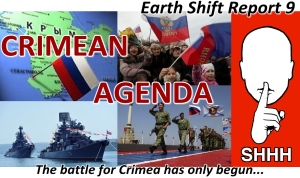











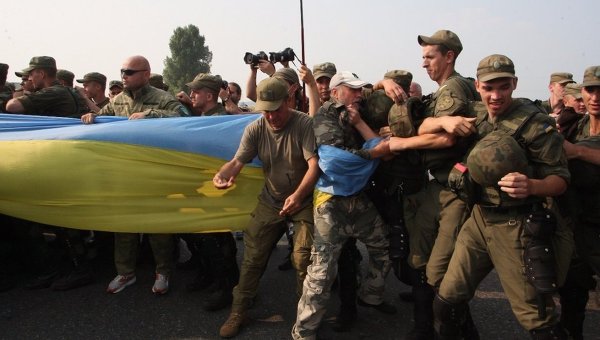






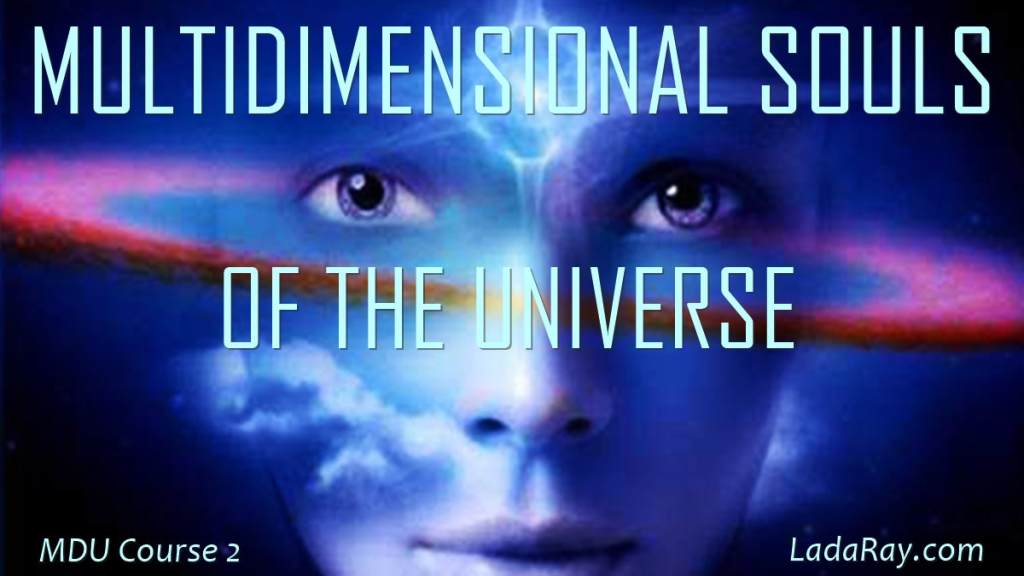


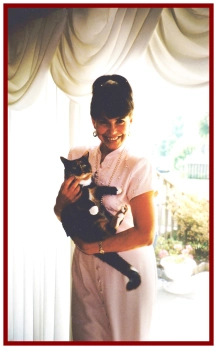
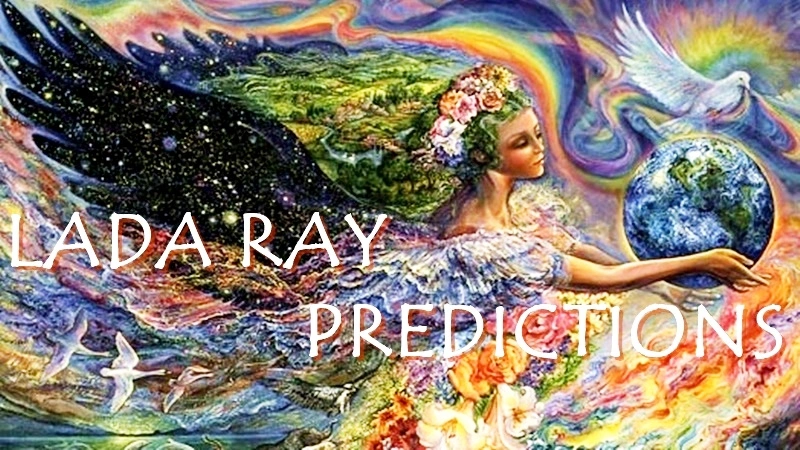
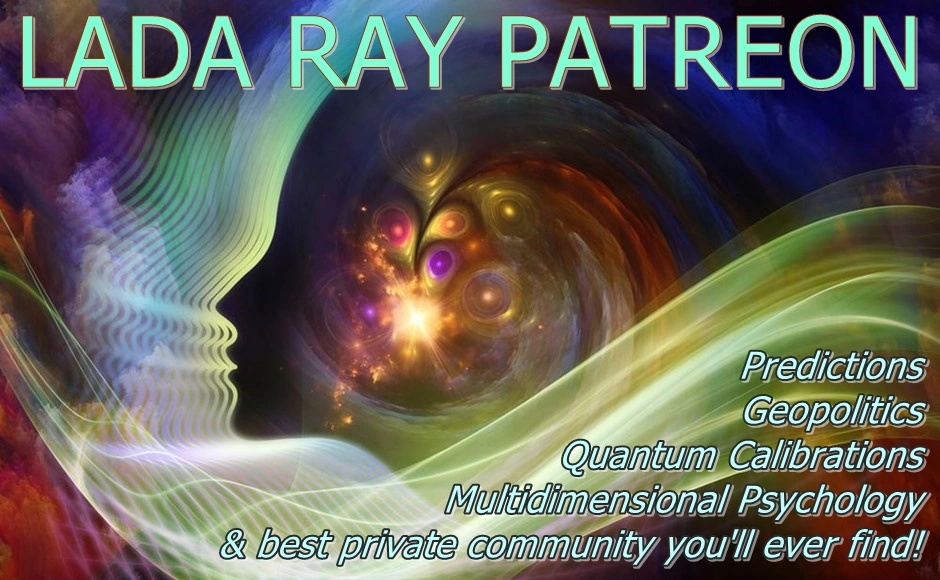
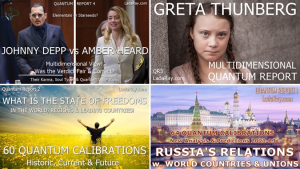
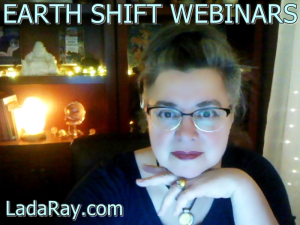
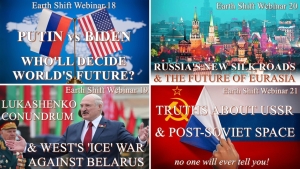
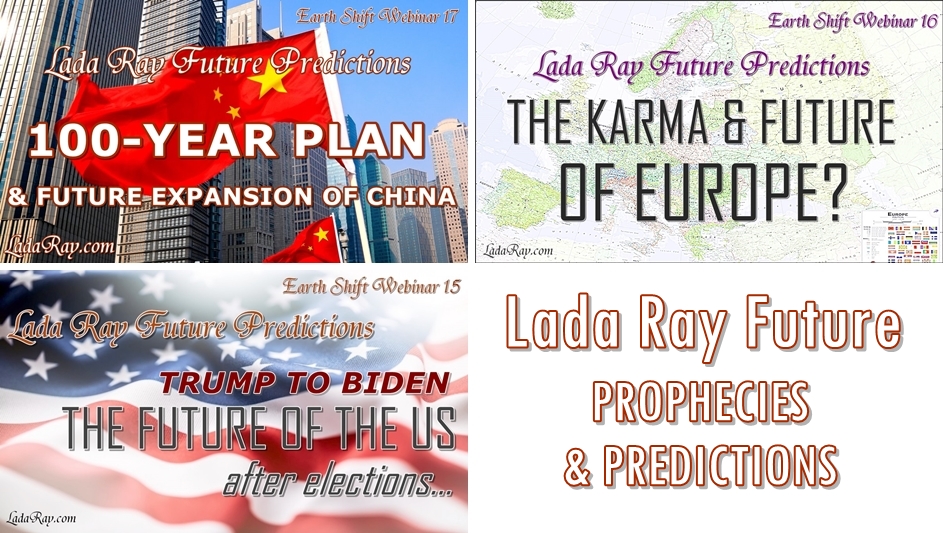
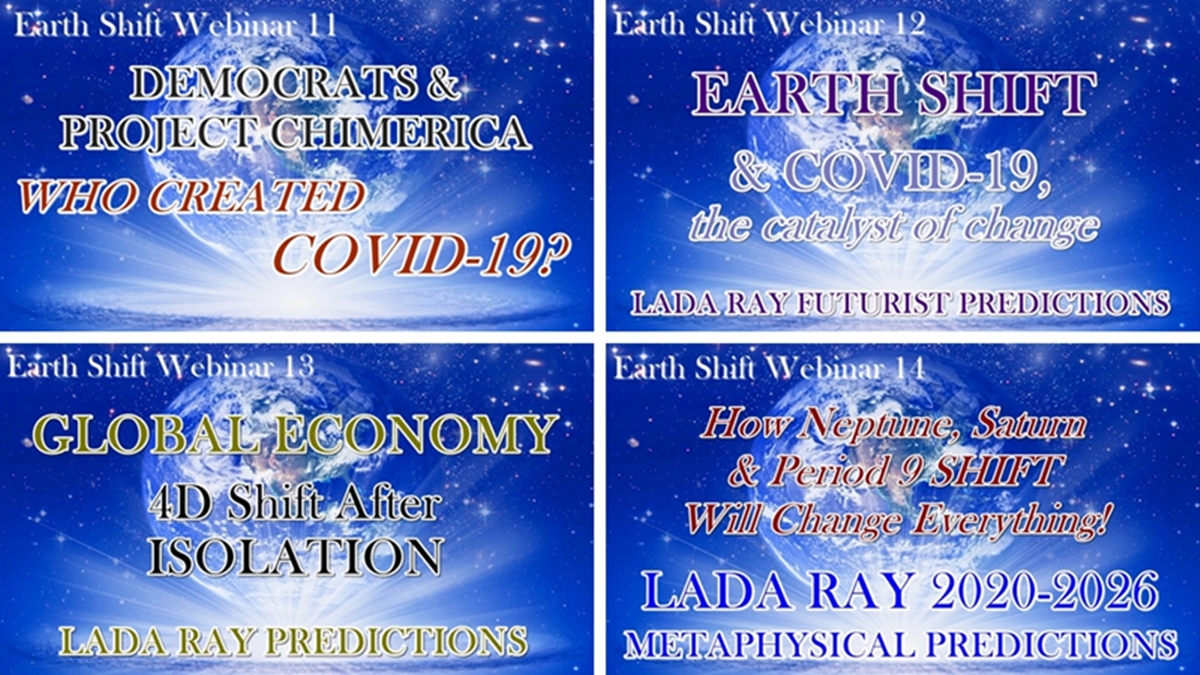
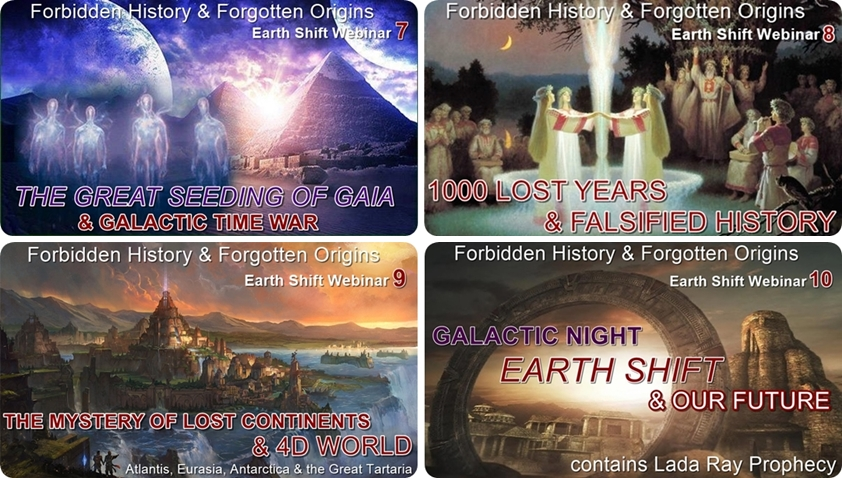
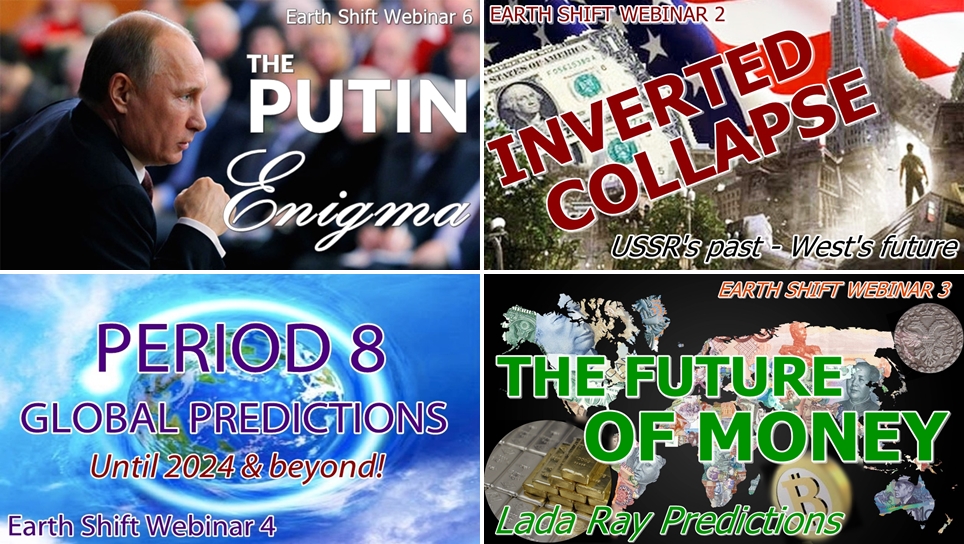
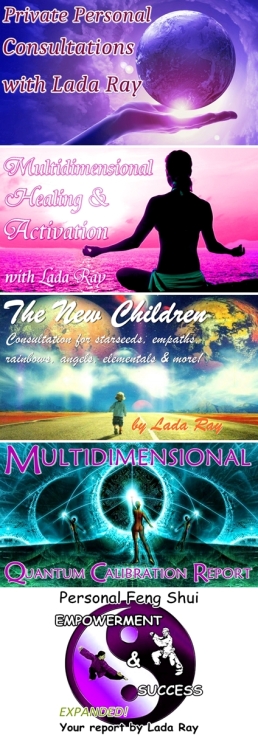

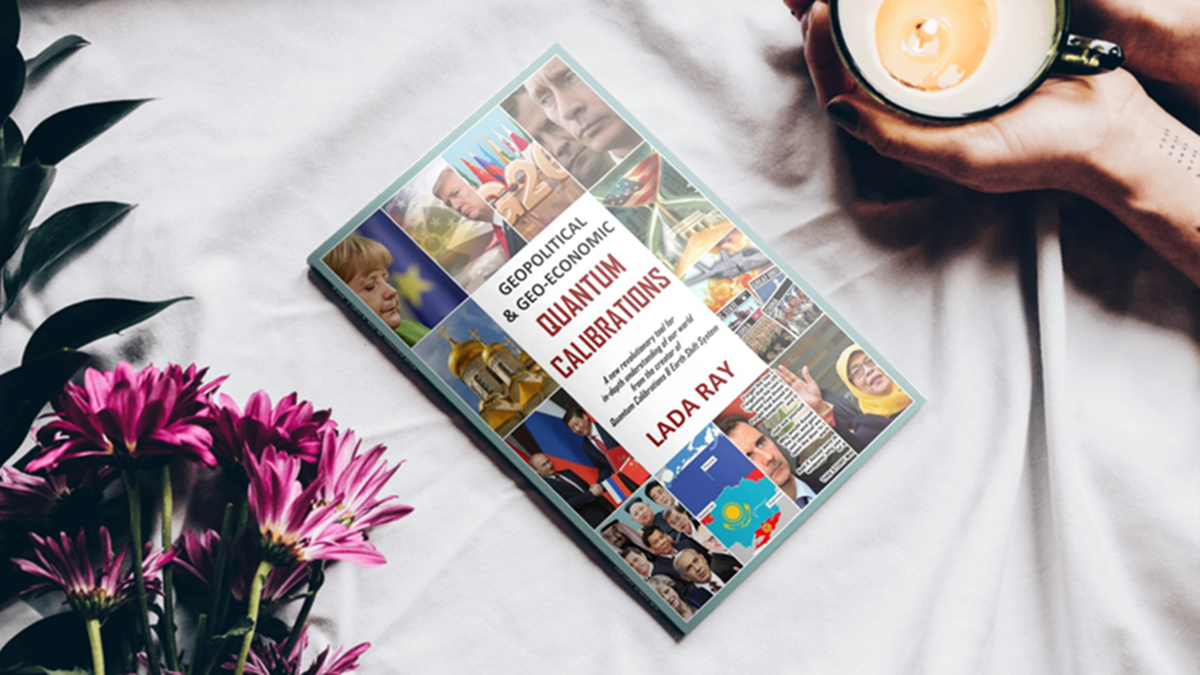

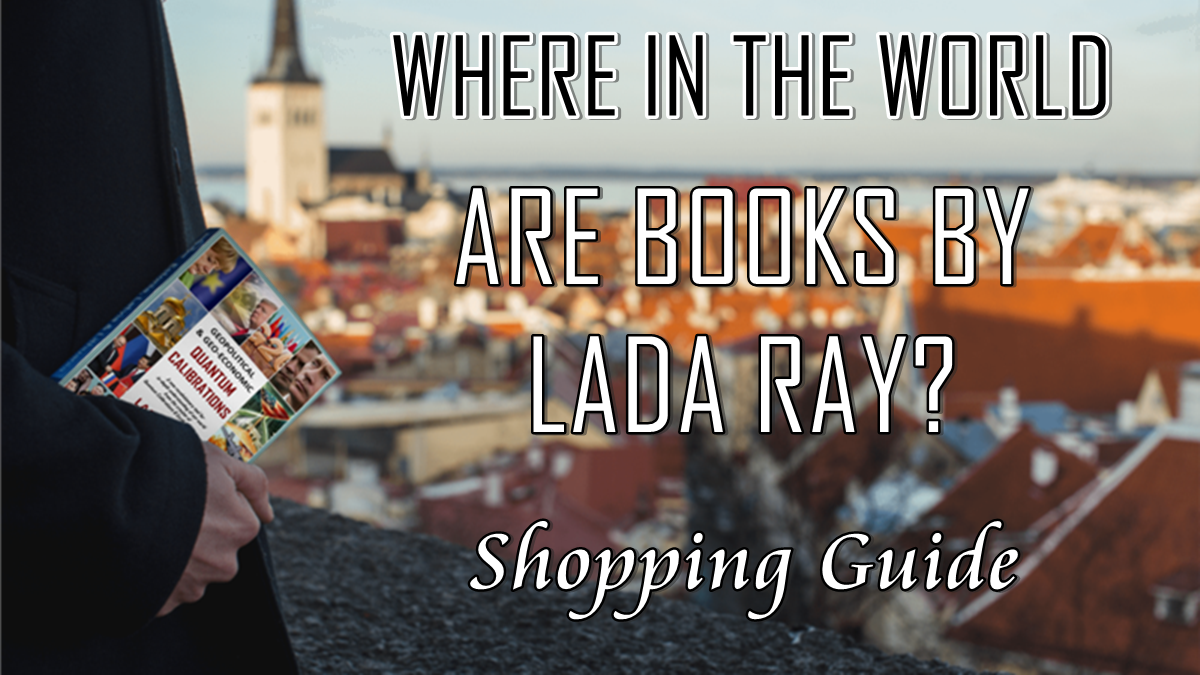
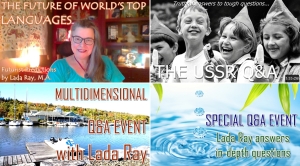

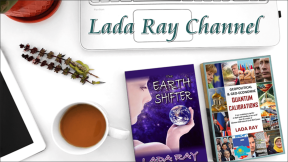


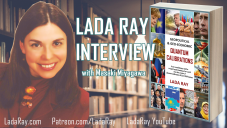

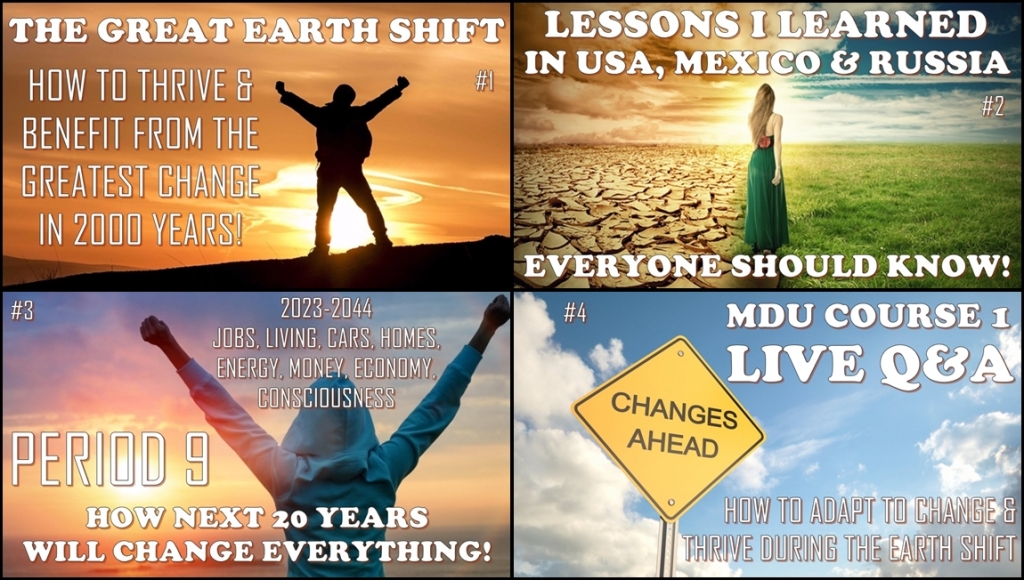
You must be logged in to post a comment.